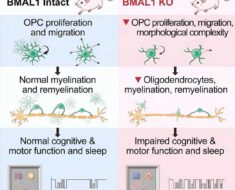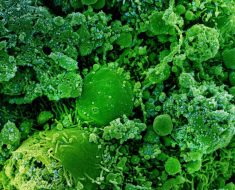Heart disease happens when the blood supply to the heart is blocked by a build-up of plaque in the arteries – this is known as atherosclerosis. According to Chris Speed, nutritional scientist, dietician and senior vice president of Global Sales & Marketing at NattoPharma, plaque is made up of calcium, which hardens in the arteries and makes them thinner. This prevents blood from flowing freely around the organs, which can lead to heart attacks. But what causes this to happen? According to Speed, it could be down to a deficiency in vitamin K2.
Whilst everyone knows the importance of having adequate levels of calcium, what a lot less people know is that without vitamin K2, the calcium cannot operate optimally
Chris Speed – NattoPharma
“Whilst everyone knows the importance of having adequate levels of calcium, what a lot less people know is that without vitamin K2, the calcium cannot operate optimally,” explains Speed.
“When the body has adequate vitamin K2 (specifically in supplemental form as MK-7), the proteins are activated, directing calcium to the bones (where it is needed) and away from arteries and soft tissues (where it can do harm).”
Vitamin K2 is difficult to obtain through diet alone, meaning a huge 97 per cent of the western world is actually deficient in it, notes Speed.
The recommended daily dose of vitamin K2 is 45 micrograms, but to get this amount you would need to consume either 4kg of beef, five litres of milk, five litres of whole yoghurt, or eight egg yolks per day.
And all of this would have to be from grass-fed animals, explains Speed. For this reason, Speed recommends taking a daily supplement of vitamin K2.

According to the nutritional expert, vitamin K2 works even better when combined with some other nutrients, including omega-3 and vitamin D3.
Omega-3 is an essential fatty acid which is widely recognised as a heart-healthy nutrient.
Omega-3 cannot be made by the body so must be consumed through food or supplements.
Clinical studies show vitamin K2 makes an “excellent combination” with supplemental omega-3, notes Speed, to support heart and circulatory health.
As well as dietary supplements, omega-3 can be found in oily fish, nuts and plant oils.
Vitamin D3, meanwhile, helps regulate the amount of calcium in the body.


10 foods to prevent heart disease
Here are out top 10 foods to prevent heart disease.

Top 10 foods for better heart health
When combined with vitamin K2, the two provide bone, heart and cardiovascular support.
Like vitamin K2, it is difficult to get the recommended daily dose of vitamin D3 from diet alone.
Vitamin D3 is fund in oily fish, red meat, liver and egg yolks, but the main source of the vitamin is sunlight.
During the spring and summer months, most people in the UK get adequate levels of vitamin D from being outdoors, but in the autumn and winter there is too little sun to get enough of the vitamin.
For this reason, UK health officials advise everyone take a daily vitamin D supplement during the colder months.
Source: Read Full Article





